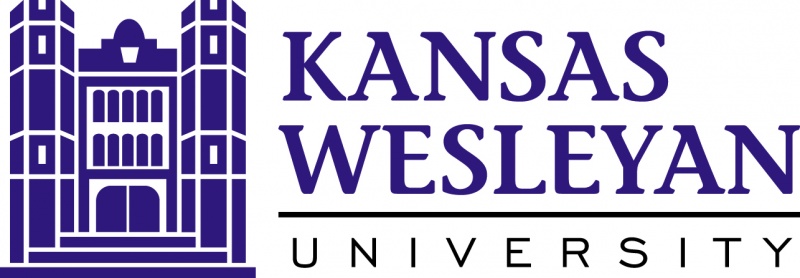
If you are looking for the best affordable Bachelor’s in Cyber/Computer Forensics degrees, you have come to the right place. With computers becoming more complex and cybercrime growing, the country needs more people who can identify, evaluate, and stop those crimes. The skills undergraduates learn by studying computer forensics are important in law enforcement. Other areas in which students may find work include network administration, software development, and other disciplines in technology. Federal, state, and local governments, as well as companies of all sizes, employ cyber/computer forensics professionals to make sure their data is safe. Many universities and colleges offer either a straightforward degree in computer forensics or an information technology degree with a specialization in computer forensics. Keep reading to learn more about the best affordable cyber/computer forensics degrees in the U.S.
Methodology
We know how overwhelming it can be to compare a seemingly endless number of prospective colleges and universities. To help you, we decided to compile a list of the most affordable cyber/computer forensics degrees. We awarded points to each of the following 25 schools based on three key factors: tuition rates, student-to-faculty ratios, and graduation rates. Before we could award points and rank the top colleges and universities, however, we first needed to compile a list of schools. To do this, we searched for cyber/computer forensics bachelor’s degree using the College Navigator tool at the National Center for Education Statistics. We then narrowed down the search results from 30 schools into the top 25 programs based on the methodology.
Average Cost of Attendance
One of the first things most students look at in a program is the cost. After all, why waste time comparing degree options and extracurriculars if you know you can’t afford the school in the first place? Although we understand the temptation of wanting to go to the cheapest school possible, make sure the school you are thinking about has the degree or concentration you want. You might also wish to compare extracurriculars and internships as they relate to tuition. Since this ranking is based around affordability, we awarded points based on the cost of one academic year of study for in-state students using tuition rates reported by the NCES. We also noted out-of-state tuition costs for reference purposes only.
Points:
Under $7,500: 5 points
$7,500 to $15,000: 3 points
$15,001 and above: 1 point
Student-to-Faculty Ratio
We used each school’s student-to-faculty ratio to get a better idea of the size of its classes and its overall learning environment. Some students prefer to blend in with a large class and work without too many interactions with their classmates. Others need the accountability that small classes provide. Low student-to-faculty ratios may also mean that students have a better chance to develop close relationships with their peers and professors. So, think about the environment in which you learn best. Although both small and large classes have their pros and cons, we awarded the most points to schools with the lowest-student-to-faculty ratios from NCES and, therefore, the smallest classes.
Points:
10:1 or less: 3 points
11:1 to 15:1: 2 points
Greater than 15:1: 1 point
Graduation Rate
Finally, we awarded points based on each school’s graduation rate. We used this number to measure how happy and successful students were at each institution. In most cases, those who are satisfied with their program and with the school itself are more likely to remain enrolled and graduate with their degrees. On the other hand, those who are not satisfied are more likely to withdraw and finish their degrees somewhere else. This could happen for any number of reasons like students not getting the academic support they need or students feeling like a school is charging too much for its degrees. Therefore, we awarded the most points to colleges and universities with the highest graduation rates, according to NCES.
Points
More than 50 percent: 3 points
Between 30 percent and 50 percent: 2 points
Less than 30 percent: 1 point
Ranking Top 25 Best Affordable Cyber/Computer Forensics Degrees
25. Tiffin University
Tiffin, Ohio

Points: 4
Program Website
Established in 1888, Tiffin University is a private institution of higher education and one of the most affordable universities for a cyber/computer forensics degree. Tiffin’s low-cost Bachelor of Criminal Justice in Digital Forensics is designed from an evidence recovery and investigative perspective instead of a computer science perspective. Within the economical121-hour degree program, students complete 48 hours in the digital forensics major and 18 hours of core criminal justice courses. Areas of study include technology and crime, network management and administration, digital forensics, cyber defense, and information technology project management. The inexpensive degree program is offered on-campus in a 15-week semester format, with students beginning in January and August of each year.
Degree Options:
Bachelor of Criminal Justice in Digital Forensics
In-State Tuition: $25,000
Out-of-State Tuition: $25,000
Student-to-Faculty Ratio: 15:1
Graduation Rate: 29 percent
24. Embry-Riddle Aeronautical University-Prescott
Prescott, Arizona

Points: 5
Program Website
Embry-Riddle Aeronautical University is a private university that operates two main campuses in Prescott, Arizona and Daytona Beach, Florida. Established in 1926, ERAU is the largest institution of higher education specializing in aerospace and aviation. Students looking for an affordable cyber/computer forensics degree can pursue a high-value Bachelor of Science in Cyber Intelligence and Security. The 120-credit-hour low-cost degree program features a unique blend of courses in management, security, intelligence gathering, engineering, and computer science. Students also work on real-world activities with well-known agencies like the DPS, DHS, and FBI. To graduate, students choose one of three senior capstone options: an internship/co-op program, a thesis, or a project.
Degree Options:
Bachelor of Science in Cyber Intelligence and Security
In-State Tuition: $35,654
Out-of-State Tuition: $35,654
Student-to-Faculty Ratio: 17:1
Graduation Rate: 65 percent
23. University of the Incarnate Word
San Antonio, Texas

Points: 5
Program Website
Founded by the Sisters of Charity of the Incarnate Word in 1881, the University of the Incarnate Word is a private Catholic university. Students seeking a low-cost cyber/computer forensics degree can pursue a top-value Bachelor of Science in Cyber Security Systems. The 122-credit-hour economical major is built on a foundation of courses in computer hardware, telecommunications, networks, and operating systems. Students are also exposed to systems analysis, database systems, and website development. Through the curriculum, students develop the skills necessary for managing IT personnel and technology. Outside of the classroom, undergraduates benefit from career development courses like internships, seminars, and either a senior practicum experience or a capstone project.
Degree Options:
Bachelor of Science in Cyber Security Systems
In-State Tuition: $31,484
Out-of-State Tuition: $31,484
Student-to-Faculty Ratio: 11:1
Graduation Rate: 49 percent
22. University of Charleston
Charleston, West Virginia

Points: 5
Program Website
The University of Charleston, established in 1888, is a private university and one of the most affordable universities for a cyber/computer forensics degree. UC offers an inexpensive Bachelor of Science in Applied Computer Science with a major in Cybersecurity and Information Assurance. The top-value degree program emphasizes both practical management tools and technical skills. Areas of study include security and information assurance, cybersecurity, ethical hacking, and security analysis. The budget-friendly degree program culminates in a cybersecurity capstone. Graduates are eligible to earn industry-certified security certifications like the Certified Information Systems Security Professional, Certified Ethical Hacker, EC-Council Certified Security Analyst, Certified Incident Handler, and CompTIA Advanced Security Practitioner designations.
Degree Options:
B.S. in Applied Computer Science, Cybersecurity and Information Assurance Major
In-State Tuition: $30,900
Out-of-State Tuition: $30,900
Student-to-Faculty Ratio: 15:1
Graduation Rate: 47 percent
21. Charleston Southern University
Charleston, South Carolina

Points: 5
Program Website
Founded as Baptist College in 1964, Charleston Southern University is a private institution of higher education that is affiliated with the South Carolina Baptist Convention. CSU offers a cost-effective cyber/computer forensics degree in the form of a Bachelor of Science in Cybersecurity. The high-value degree program combines coursework in mathematics, criminal justice, network security, and computer science. Cybersecurity majors will also take classes in network penetration and ethical hacking, cybersecurity, and cyber defense. Outside of the classroom, undergraduates benefit from state-of-the-art laboratory facilities and extracurriculars such as CSU’s Cybersecurity Club. Graduates are prepared to work in the fields of information analysis, computer forensics, and network security.
Degree Options:
Cybersecurity (BS Degree)
In-State Tuition: $25,540
Out-of-State Tuition: $25,540
Student-to-Faculty Ratio: 12:1
Graduation Rate: 42 percent
20. Davenport University
Grand Rapids, Michigan

Points: 5
Program Website
Founded in 1866, Davenport University is a private institution of higher education and an affordable, accredited university for a cyber/computer forensics degree. Davenport is one of only 15 schools in the U.S. to be designated as a Center of Academic Excellence in Digital Forensics (CDFAE) by the Department of Defense Cyber Crime Center (DC3). The school’s inexpensive120-credit Bachelor of Science in Digital Forensics features core coursework in operating systems, database design, security foundations, and project management. Other areas of study include evidence and criminal procedures, PC maintenance and management, mobile device forensics, network forensics, and data recovery. The top-value degree program culminates in a senior capstone course.
Degree Options:
Bachelor of Science – Digital Forensics
In-State Tuition: $18,414
Out-of-State Tuition: $18,414
Student-to-Faculty Ratio: 15:1
Graduation Rate: 49 percent
19. Chestnut Hill College
Philadelphia, Pennsylvania

Points: 6
Program Website
Founded in 1924 as Mount Saint Joseph College, a women’s college, Chestnut Hill College is a private, Roman Catholic institution of higher learning. Recognized as one of the most affordable colleges for a cyber/computer forensics degree, CHC offers an economical Bachelor of Science in Cybersecurity. The low-cost degree program explores key topics in the field of cybersecurity like operating systems, security and defense, database design and development, digital forensics, and database security. Outside of the classroom, students apply what they have learned through hands-on internship experiences that utilize the latest software and hardware. Undergraduates also have the opportunity to engage in service work and obtain industry certifications after completing certain classes.
Degree Options:
Bachelor of Science in Cybersecurity
In-State Tuition: $36,180
Out-of-State Tuition: $36,180
Student-to-Faculty Ratio: 10:1
Graduation Rate: 60 percent
18. Roger Williams University
Bristol, Rhode Island

Points: 6
Program Website
Undergraduates looking for an economical cyber/computer forensics degree might consider attending Roger Williams University. Founded in 1956, RWU is a private, liberal arts university that offers a low-cost Bachelor of Science in Cybersecurity and Networking. The top-value 120-credit-hour degree program investigates various aspects of technology and computing related to computer security, telecommunication, and TCP/IP networking. It features courses in mobile device forensics, network analysis, database design, and computer security techniques. Students may choose a specialized focus area like audits or digital forensics. The curriculum is taught through hands-on study in RWU’s Forensics and Networking Security lab. Students must complete an internship before graduating.
Degree Options:
Cybersecurity and Networking, B.S.
In-State Tuition: $34,522
Out-of-State Tuition: $34,522
Student-to-Faculty Ratio: 14:1
Graduation Rate: 70 percent
17. Methodist University
Fayetteville, North Carolina

Points: 6
Program Website
Known as Methodist College from 1956 to 2006, Methodist University is a private university affiliated with the United Methodist Church. The school’s inexpensive Bachelor of Science in Digital Forensics and Cybersecurity is comprised of introductory courses in networking and cybercrime, cybersecurity, data recovery, and digital forensics. The low-priced degree program also focuses on the operational procedures, policies, and techniques needed to help secure an organization’s infrastructure. Students must also complete required courses in justice studies, examining areas like victimology, criminal evidence and procedure, criminal justice, and criminology. Graduates are prepared to prevent, detect, investigate, and gather digital evidence of crime.
Degree Options:
Bachelor of Science (B.S.) in Digital Forensics and Cybersecurity
In-State Tuition: $33,852
Out-of-State Tuition: $33,852
Student-to-Faculty Ratio: 9:1
Graduation Rate: 36 percent
16. Christian Brothers University
Memphis, Tennessee

Points: 6
Program Website
Established in 1871, Christian Brothers University is a private Catholic university that offers a high-value cyber/computer forensics degree in the form of a low-cost Bachelor of Science in Cybersecurity and Digital Forensics. The high-value degree program is interdisciplinary and integrates courses in management information systems, electrical engineering, computer science, and business. Students complete 123 hours of coursework, including 59 hours in the major. Topics of study include systems analysis and design, cybersecurity and computer networks, digital forensics, information security, operating systems, and cybersecurity. Students must also participate in a cybersecurity internship before graduating from the program.
Degree Options:
Cybersecurity and Digital Forensics (BS)
In-State Tuition: $32,820
Out-of-State Tuition: $32,820
Student-to-Faculty Ratio: 12:1
Graduation Rate: 58 percent
15. Lewis University
Romeoville, Illinois

Points: 6
Program Website
Founded in 1932, Lewis University is a private Lasallian and Roman Catholic university. It is also a top choice for students seeking a best-value cyber/computer forensics degree. The school’s accelerated and inexpensive Bachelor of Science in Information Security Management combines managerial theory with technical knowledge. Students develop a foundation through coursework in ethical hacking, computer forensics, data communications, and IT operations. Other areas of study include security management, risk management, and information security. Graduates are prepared for several prestigious industry certifications. Course options are available in blended, online, weekend, and evening formats. An accelerated Bachelor’s to Master’s in Information Security and a Bachelor’s to Master of Business Administration are also available.
Degree Options:
Information Security Management, B.S. (Accelerated)
In-State Tuition: $32,450
Out-of-State Tuition: $32,450
Student-to-Faculty Ratio: 13:1
Graduation Rate: 64 percent
14. Robert Morris University
Moon Township, Pennsylvania

Points: 6
Program Website
Robert Morris University, a private institution of higher education, was established in 1921 and named after Robert Morris, a signer of the Constitution and the Declaration of Independence. Undergraduates looking for an affordable degree in cyber/computer forensics can pursue RMU’s top-value Bachelor of Science in Cybersecurity and Digital Forensics. Available online and on-campus, the low-cost degree program combines the disciplines of law, organizational behavior, business, and technology. Specific topics of study include network forensics, digital evidence analysis, mobile forensics, computer and network security, program management, and IT security, control, and assurance.
Degree Options:
Cybersecurity and Digital Forensics B.S.
In-State Tuition: $30,300
Out-of-State Tuition: $30,300
Student-to-Faculty Ratio: 15:1
Graduation Rate: 64 percent
13. Kansas Wesleyan University
Salina, Kansas

Points: 6
Program Website
Established in 1886, Kansas Wesleyan University is a private Christian school affiliated with the United Methodist Church. It is also recognized as an affordable university for a cyber/computer forensics degree. KWU’s Department of Computer Studies offers an affordable Bachelor of Science in Forensic Computing with a focus on digital evidence. The high-value degree program teaches students how to utilize, investigate, and research electronic device and computer software. Students also learn how to interpret laws and use the Internet as an investigation tool. Outside of the classroom, KWU students have the opportunity to pursue a National Science Foundation-funded Research Experience for Undergraduates (REU) at a major research university.
Degree Options:
Bachelor of Science (B.S.) in Forensic Computing, Digital Evidence
In-State Tuition: $29,500
Out-of-State Tuition: $29,500
Student-to-Faculty Ratio: 10:1
Graduation Rate: 37 percent
12. Hilbert College
Hamburg, New York

Points: 6
Program Website
Hilbert College, established in 1957, is a private Franciscan College that was founded to train teachers. Today, the coeducational liberal arts college is also one of the most affordable colleges for a cyber/computer forensics degree. Students may earn a low-cost Bachelor of Science in Cybersecurity through a joint effort between Hilbert College and St. Bonaventure University. No travel is required as shared courses are provided via distance learning technology. The curriculum includes rigorous coursework that examines both the managerial and technical sides of cybersecurity. Students also benefit from practical, hands-on learning in a state-of-the-art, dedicated lab. Internship opportunities are available. Graduates are prepared for careers in law enforcement, government, and business.
Degree Options:
Bachelor of Science Degree in Cybersecurity
In-State Tuition: $22,350
Out-of-State Tuition: $22,350
Student-to-Faculty Ratio: 12:1
Graduation Rate: 59 percent
11. Utica College
Utica, New York

Points: 6
Program Website
Established in 1946, Utica College is a private institution of higher education that began as an extension of Syracuse University. Today, UC is an independent institution and one of the most affordable colleges for a cyber/computer forensics degree. The school’s economical Bachelor of Science in Cybersecurity integrates courses in computer science, economic crime, criminal justice, and criminology. Students can choose from four specializations: Cybercrime and Fraud Investigation, Network Forensics and Intrusion Investigation, Information Assurance, or Cyber Operations. Graduates are prepared for careers in industrial and corporate security, government intelligence services, law enforcement, and homeland security.
Degree Options:
B.S. in Cybersecurity
In-State Tuition: $21,382
Out-of-State Tuition: $21,382
Student-to-Faculty Ratio: 13:1
Graduation Rate: 54 percent
10. Wilmington University
New Castle, Delaware

Points: 6
Program Website
Established in 1968 as Wilmington College, Wilmington University is a private, doctoral research institution that enrolls nearly 21,000 undergraduate and graduate students each year. WU’s affordable Bachelor of Science in Computer and Network Security provides a broad foundation in cybersecurity and includes an optional concentration in digital forensics. Core areas of study include web and data security, operating systems and computer systems security, information security, and network security. Outside of the classroom, students gain expertise through hands-on learning experiences led by cybersecurity experts. Graduates are also prepared for industry-recognized certifications like Network+, Security+, Linux+, A+, ACE, CISSP, and CISA.
Degree Options:
B.S. in Computer and Network Security (CNS)
In-State Tuition: $11,210
Out-of-State Tuition: $11,210
Student-to-Faculty Ratio: 12:1
Graduation Rate: 24 percent
9. Dakota State University
Madison, South Dakota

Points: 6
Program Website
Dakota State University is a public institution of higher education that was founded as a teacher training school in 1881. Today, DSU is recognized as an accredited university for a cyber/computer forensics degree. The school’s unique low-cost Bachelor of Science in Cyber Leadership and Intelligence is one of only a few of its kind in the nation. The economical degree program focuses on cyber systems while educating students about leadership, criminal groups, international politics, and world cultures. In addition to completing a rigorous core curriculum, undergraduates are required to choose a specialization in either World Affairs and Human Behavior or Digital Forensics. Graduates are prepared to work in private companies as well as in local, state, and federal governments.
Degree Options:
Cyber Leadership and Intelligence (BS)
In-State Tuition: $9,276
Out-of-State Tuition: $12,249
Student-to-Faculty Ratio: 18:1
Graduation Rate: 47 percent
8. Farmingdale State College
Farmingdale, New York

Points: 6
Program Website
Officially known as the State University of New York (SUNY) at Farmingdale, Farmingdale State College is a public technology college and a member of the SUNY System. FSC offers a top-value cyber/computer forensics degree in the form of a cheap Bachelor of Science in Computer Security Technology. The curriculum prepares students to combat security challenges and issues in the digital environment, including cyberspace, computer networks, and computer systems. Students must complete 121 credits of study in key areas like operating systems and security, digital systems and security, networking, cryptography, and data security. A senior project is required for graduation.
Degree Options:
Bachelor of Science in Computer Security Technology
In-State Tuition: $8,306
Out-of-State Tuition: $18,086
Student-to-Faculty Ratio: 20:1
Graduation Rate: 50 percent
7. Bloomsburg University
Bloomsburg, Pennsylvania

Points: 7
Program Website
Established in 1839, Bloomsburg University is a public institution of higher education and one of the 14 campuses that make up the Pennsylvania State System of Higher Education (PASSHE). BU is also recognized as a National Center of Academic Excellence (CAE) in Cyber Defense Education with a focus in digital forensics, offering the only affordable bachelor’s degree in digital forensics in the PASSHE. The low-priced degree program examines areas like digital forensics software, security fundamentals, networking, and digital forensics file systems. Graduates are currently employed in private companies, law firms, homeland security agencies, and law enforcement.
Degree Options:
Digital Forensics Bachelor’s Degree
In-State Tuition: $10,958
Out-of-State Tuition: $22,782
Student-to-Faculty Ratio: 19:1
Graduation Rate: 60 percent
6. SUNY College at Plattsburgh
Plattsburgh, New York

Points: 7
Program Website
The State University of New York (SUNY) College at Plattsburgh is a public liberal arts college and one of the most affordable colleges for a cyber/computer forensics degree. SUNY Plattsburgh offers two affordable programs: a Bachelor of Arts and a Bachelor of Science in Computer Security major. Each economical degree program provides a broad understanding of the discipline through an overlap of three majors: computer security, information technology, and computer science. Students may also choose one of five concentrations: Reliability, Threat Analysis, Management Information Systems, Intrusion Detection or Privacy. Outside of the classroom, internships provide opportunities for undergraduates to develop technical skills and gain practical experience.
Degree Options:
Computer Security Major
In-State Tuition: $8,369
Out-of-State Tuition: $18,149
Student-to-Faculty Ratio: 16:1
Graduation Rate: 68 percent
5. Purdue University
West Lafayette, Indiana

Points: 8
Program Website
Founded in 1869, Purdue University is a public research university and one of the most affordable universities for a cyber/computer forensics degree. Offered through the Department of Computer and Information Technology, Purdue’s top-value Bachelor of Science in Cybersecurity helps students gain expertise in investigating, managing, building, and designing IT infrastructures and systems. Undergraduates also learn how to analyze security vulnerabilities and risks. The curriculum’s holistic approach includes coursework in UNIX fundamentals, digital forensics, cryptography, secure coding, and criminology. Students learn in close-knit, small classes that feature individualized attention. They also work in industry-standard labs to gain hands-on, real-world experience. Purdue offers opportunities for internships through several industry partnerships.
Degree Options:
Cybersecurity, BS
In-State Tuition: $9,992
Out-of-State Tuition: $28,794
Student-to-Faculty Ratio: 13:1
Graduation Rate: 81 percent
4. University of Central Oklahoma
Edmond, Oklahoma

Points: 8
Program Website
The University of Central Oklahoma is a public university and the third-largest institution of higher education by enrollment in the state. Founded in 1890, UCO offers a low-cost Bachelor of Science in Forensic Science degree with a focus on digital forensics. The affordable degree program is one of only two FEPAC-accredited undergraduate programs in digital forensics in the U.S. The curriculum examines the fundamentals of digital forensics, including forensic examination, digital forensics tools, data recovery, and the collection and preservation of digital evidence. Students are required to complete a second major in either information systems management or computer science as well as the required 36 hours in forensic science.
Degree Options:
B.S. Forensic Science – Digital Forensics
In-State Tuition: $7,489
Out-of-State Tuition: $18,376
Student-to-Faculty Ratio: 18:1
Graduation Rate: 36 percent
3. Northeastern State University
Tahlequah, Oklahoma

Points: 8
Program Website
Northeastern State University is a public university and the oldest institution of higher education in Oklahoma. Students looking for an affordable cyber/computer forensics degree can earn a high-value Bachelor of Science in Cybersecurity from NSU. The economical interdisciplinary degree program pulls from the fields of computer science, information systems, and criminal justice. Required areas of study include system and network administration, cybersecurity, network security, digital forensics, and information security. Undergraduates can also tailor their degree through electives in areas like ethical hacking, data mining, terrorism, evidence, or homeland security. Graduates are prepared to work in incident response, cyber management, compliance risk analysis, and cybersecurity analysis.
Degree Options:
Bachelor of Science in Cyber Security
In-State Tuition: $6,650
Out-of-State Tuition: $14,720
Student-to-Faculty Ratio: 19:1
Graduation Rate: 35 percent
2. St. Petersburg College
St. Petersburg, Florida

Points: 8
Program Website
Taking the number two spot on our list of the most affordable colleges for a cyber/computer forensics degree is St. Petersburg College, a public institution of higher education and a member of the Florida College System. Established in 1927 as St. Petersburg Junior College, SPC offers an affordable Bachelor of Applied Science in Technology Development and Management that features eight-week online or blended courses. Students can choose a subplan within the program such as cybersecurity, data science, project management, software development, or software assurance. Specifically, the cybersecurity subplan is comprised of required courses in information security policy administration and management, applications in information security, security essentials, strategic cybersecurity enforcement, and core security principles. Students must complete 120 total credits to earn the cheap B.A.S. in Technology Development and Management degree.
Degree Options:
Technology Development and Management B.A.S. Degree
In-State Tuition: $2,682
Out-of-State Tuition: $9,286
Student-to-Faculty Ratio: 24:1
Graduation Rate: 32 percent
1. Florida State University
Tallahassee, Florida

Points: 9
Program Website
Topping our list of the most affordable universities for a cyber/computer forensics degree is Florida State University. Established in 1851, FSU is a public space- and sea-grant research university and a senior member of the State University System of Florida. FSU offers a low-cost Bachelor of Science in Cyber Criminology that is offered jointly through the College of Criminology and Criminal Justice and the Department of Computer Science. The curriculum focuses on computer and network security, cyber forensics, and information-related crime. Students will investigate how people commit crimes by using computers as well as how computers can help students to learn more about crime. Undergraduates must complete 120 hours of study to earn their degree. Graduates are prepared to work within the government, academia, law enforcement agencies, and organizations as network security specialists and information crime specialists.
Degree Options:
Undergraduate BS in Cyber Criminology
In-State Tuition: $5,656
Out-of-State Tuition: $18,786
Student-to-Faculty Ratio: 21:1
Graduation Rate: 83 percent
Frequently Asked Questions
What are the Career Options for a Bachelor’s in Cyber/Computer Forensics Degree?
Cyber/computer forensics is a great choice if you are interested in analyzing and studying technology. When you earn a Bachelor’s in Cyber/Computer forensics degree, you are prepared for many job titles and careers. Knowing how to analyze security and its failures and being an expert in computer security is useful in several industries. In most positions, computer forensics is just one skill out of many you will apply to your work.
Cyber/computer forensic professionals are responsible for recovering deleted files or searching hard drives for hidden files. They use file recovery programs or encryption decoding software to gather evidence for criminal cases. They may also be required to testify in court about what they have found in the process. Although the position of computer forensic specialist is one of the most recognized job titles, several other common career options for undergraduates with a bachelor’s degree in cyber/computer forensics include:
- Software Developer
- Network Architect
- Information Security Analyst
- Computer Forensics Investigator
- Computer Systems Analyst
When considering career options, keep in mind that the term “digital forensics” is often used interchangeably with computer forensics. However, digital forensics is a discipline that involves digital communications and devices other than computers like network servers and cell phones.
What is the Salary Potential for a Bachelor’s in Cyber/Computer Forensics Degree?
Since the field of cyber/computer forensics is vast and includes many different job titles, we consulted the U.S. Bureau of Labor Statistics to learn more about how much a professional can make in four of the most common careers. To start, computer network architects earned $109,020 per year as of May 2018, according to the BLS. The highest 10 percent earned more than $164,280, while the lowest 10 percent earned less than $60,210. The median annual wages for this occupation in the top industries in which they worked included:
- Management of enterprises and companies: $113,150
- Telecommunications: $112,730
- Computer systems design and related services: $111,300
- Insurance carriers and related activities: $111,250
- Private, local, and state educational services: $73,170
Software developers also reported a six-figure salary, bringing home $105,590 per year as of May 2018. The highest 10 percent earned more than $161,290, while the lowest 10 percent earned less than $61,660. Similar to computer network architects, the highest-paying industries for software developers included manufacturing, management of companies and enterprises, and computer systems design and related services. Other lucrative industries included software publishers and both finance and insurance.
What Will You Learn in a Bachelor’s in Cyber/Computer Forensics Degree Program?
As is the case with any degree program, the curriculum requirements for a Bachelor’s in Cyber/Computer Forensics degree vary between schools. Also, some schools might offer a bachelor’s degree in information technology or a related discipline with a concentration in cyber/computer forensics. Others might provide a traditional Bachelor of Science in Cyber/Computer Forensics. Undergraduates who pursue a Bachelor’s in Cyber/Computer Forensics might have the opportunity to further focus their degree through a concentration in:
- Forensic Analysis
- Smartphone Forensics
- White Hat Hacking
- Cyber Criminology
- Cyber Intelligence
- Financial Fraud
By the same token, the specific courses you will take in an undergraduate computer forensics degree will also depend on the school you are attending. However, there are a few subjects that can be found in most programs, many of which build a foundation in the field of computer forensics. The following classes teach students the skills they need to process and analyze information, including encrypted data found on computers belonging to suspects and victims.
- Cyber Criminology
- Introduction to Basic Computer Forensics
- Vulnerability Analysis and Testing
- Incident Response
- Network Security
While earning your Bachelor’s in Cyber/Computer Forensics degree, you’ll probably have the chance to meet with your professors and peers and network in professional organizations, internships, and at conferences. This can help you put your degree into motion, whether that means turning an unpaid internship into a full-time position or working in a startup. A cyber/computer forensics degree is not required for all entry-level positions, but it can give you a leg up when it comes to finding a job. Therefore, we hope that our list of the top 25 best affordable cyber/computer forensics degrees gives you the head start you need to pursue a career in this exciting and lucrative field.
AS Staff
This concludes our ranking of the top 25 best affordable cyber/computer forensics degrees.
Other Rankings of Interest:
10 Most Affordable Online Ph.D. Computer Science
15 Most Affordable Ph.D in Management Information Systems Online
25 Most Affordable Online Master’s Degrees in Computer Science
40 Best Affordable Online Computer and Information Systems Security Degree Programs (Bachelor’s)
The 50 Most Affordable Colleges with the Best Return
20 Best Affordable Online Colleges for Computer Networking Degree
15 Most Affordable Ph.D in Computer & Information Systems Security Online
25 Best Affordable Online Master’s of Computer and Information Systems Security/Information Assurance
25 Best Affordable Online Master’s in Information Systems Technology Studies
15 Best Affordable Game Design Degree (Bachelor’s)
 The Best Colleges
The Best Colleges The Lowest Costs
The Lowest Costs The Highest Returns
The Highest Returns